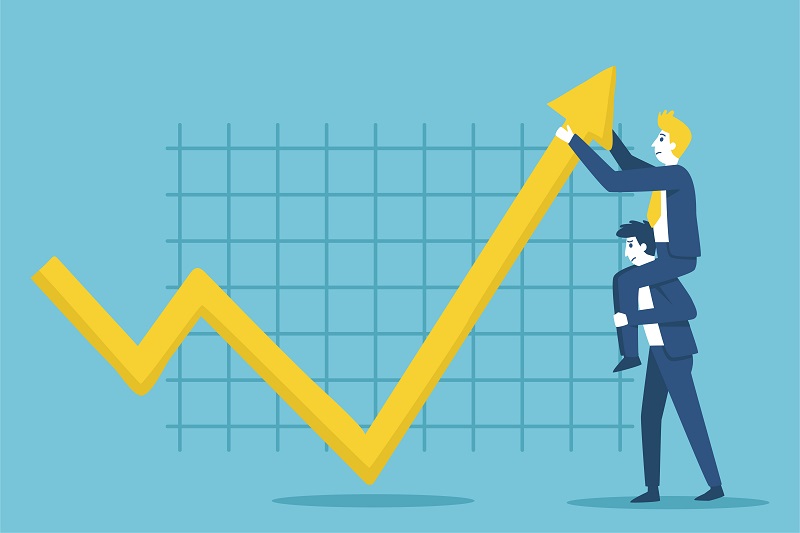Understanding The Stock Market Futures
Whether you realize it or not, futures are one of the events that have an impact on the stock market. Futures affect the price of commodities such as food, water, oil, and textiles because they are a sophisticated tool used by investors to speculate on what will happen to certain assets over time.
So, what exactly are stock market futures and how do they operate? In this post, we shall answer these questions. Continue reading to learn everything there is to know about futures investing and stock index futures trading.
What Are Stock Market Futures?
Stock market futures, sometimes referred to as market futures or stock index futures, are a type of future contract that follows a certain benchmark index, like the S&P 500. Furthermore, commodity futures demand delivery of the underlying products, and market futures contracts are paid with cash or rolled over.
Stock market futures enable traders to trade the direction of an underlying equity index and hedge equity positions, and they are utilized as a market and stock lead indicator. Market futures roll over into the following expiration month contract, in contrast to options, which may expire worthless when out of the money.
A stock market futures contract is a financial contract between a buyer and seller to buy or sell a particular amount of the underlying asset at an agreed-upon price on a future date.
Furthermore, the underlying asset can be anything, including financial instruments such as bonds or real commodities such as oil. Furthermore, technology advancements have made trading more accessible to a wider range of investors of stock market futures investing.
How Do Stock Market Futures Work?
Stock futures operate differently than stocks, and when discussing futures, you will hear the terms long and short. These are two tactics for earning from stock market futures, where a long position suggests you expect the stock price to grow. Shorting a stock is another way to benefit from a stock when the price is expected to fall.
Shorting a stock is the inverse strategy, in which you expect the stock’s price to decline as you borrow shares from a broker and sell them on the market. If the price decreases, you purchase back the shares you sold at the new lower price, profiting from the difference.
Who Can Buy Stock Market Futures?
Stock market futures can be purchased by both investors and producers, as ordinary investors can trade futures contracts on equities and producers sign futures contracts to keep their operations going.
- Hedge Investors – Hedge investments aim to reduce risk, and futures contracts are one type of hedge investment. Companies that require a certain input for production can buy their supply on the futures market and hedge against inflation and fluctuating prices. Retail investors, on the other hand, expect to take delivery of the goods or commodity they have agreed to purchase. For example, an oil refinery may enter into a futures contract with a crude oil supplier who fully intends to receive the crude oil and process it. This contract will establish a fair pricing between the refinery and the crude oil supplier.
- Speculative Investors – Speculative investors have strong beliefs about the direction of a market’s pricing, and they invest in futures based on their predictions. Furthermore, if they invest in commodity futures, they do not intend to take delivery of the product; rather, they intend to sell the contract before it occurs.
Margin And Leverage In Stock Market Futures
Similar to other futures contracts, stock market futures are traded on margin, which implies that only a small portion of the contract value is required to trade one. The margin requirements, on the other hand, are defined by the brokerage where the investor holds an account.
Margin essentially permits the investor to speculate on higher position sizes than they would if they traded the underlying asset directly. The CME Group, a derivatives marketplace, for example, sets the maintenance margin for the E-mini S&P 500 contract at $11,500.1. One contract is worth $50 times the S&P 500 index price.2 As of November 1, that figure was at 4,600, putting the value of one contract at $230,000. However, an investor can purchase or sell one of these contracts by putting up around 5% of their equity ($11,500 / $230,000).
This demonstrates the concept of leverage, when the position shifts in their favor and they can be richly rewarded. However, if it goes against them, their losses would be magnified because an investor can lose more than their initial investment. As a result, stock market futures are dangerous, and before investing in stock futures, you should assess your risk tolerance.
Advantages Of Stock Market Futures
There are several benefits of stock market futures contracts over stocks, and these are:
- Low transaction costs – Because the stock market futures contract is based on the value of several thousand shares, the stock transaction expenses to buy or sell the total underlying shares are relatively modest.
- Ease of short selling – A short position in a stock futures contract is simple to establish, allowing investors to profit from a fall in the underlying stock’s value.
- Leverage effect – Because the margin required to carry a stock futures now position is merely a fraction of the underlying stock’s value, hedging/trading activities can be carried out with less capital.
Why Trade Stock Market Futures?
You can use stock futures now for hedging or to speculate on the probable direction of the underlying asset. For example, if you have exposure to technology equities, you might sell Nasdaq 100 futures to limit the potential downside in that sector.
On the other hand, you can trade stock futures purely for speculation, as you can buy or sell the futures contract depending on your assessment of the underlying asset’s future movement.
Takeaway
Futures contracts, which deal with commodities and financial instruments, are sophisticated investment vehicles that are not suitable for everyone. Many companies, however, use stock futures now contracts to meet their input demands, but major investors trade futures contracts on speculation. To reduce the danger of losing money, you should conduct research before investing in stock market futures.
FAQs
1. What exactly are stock futures contracts?
A futures contract is classified as a derivative since its value is determined by the value of another asset. This could be any tradeable instrument in the financial markets, such as equities, bonds, commodities, and currencies. A stock futures now contract is a legally binding agreement to buy or sell a predetermined amount of the underlying asset at the agreed-upon price and date. The bulk of the time, the amounts are standardized to make trading easy.
2. How are stock futures determined?
Any futures contract’s pricing is based on the spot price reduced by the risk-free rate until the contract’s expiration date and adjusted for any extra fees, such as storage, that may be incurred. The price of a stock market index futures contract is computed by taking the cash value of the underlying index and discounting it by the risk-free rate to the nearest expiration date (front month), then removing any component stock dividends.
3. Are futures and stocks the same thing?
No. A futures contract is an agreement to buy or sell an agreed-upon amount of an underlying asset, such as a stock, at an agreed-upon price at a future date. When an investor purchases a stock, he or she becomes an owner of the company at the time of the transaction.

